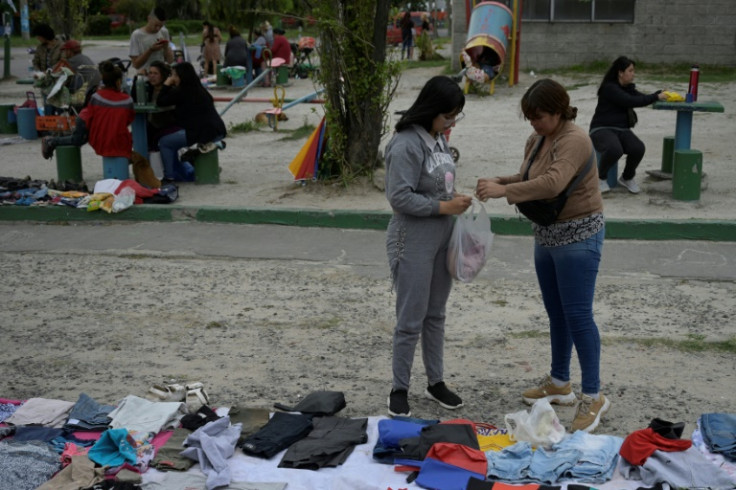
Argentina's central bank slashed the benchmark interest rate on Tuesday, as inflation slowed in the last four months.
While the annual inflation has reached 300%, it is slowly decreasing under President Javier Milei's administration.
In the statement, the central bank mentioned that it had cut the overnight interest rate from 50% to 40%, noting that this is the fifth time such a big change has been made under the administration. Milei became president in December 2023.
Furthermore, the central bank also mentioned that it has changed the way interest rates are measured. However, the shopkeepers and consumers noted that despite the lowering of the monthly inflation readings, the impact of this change is yet to be felt on the ground level.
"No matter how much the inflation rate goes down, which is what everyone says, it is not reflected here because look, there are items that should have gone down but haven't," a fruit and vegetable seller in Buenos Aires named Sandra Boluch said, Reuters reported.
The 50-year-old Boluch explained that her store had to increase workers' salaries due to higher rents. Moreover, the cost of plastic bags has also increased, which is impacting the cost of products like carrots and apples.
"These (prices) increase a lot and then that's reflected elsewhere. Where? In the merchandise. Transportation is more expensive, diesel prices go up, everything goes up. So, no matter how much we try to reduce prices, we can't," she added.
A retiree in Buenos Aires leaving a supermarket named Ofelia D'Aquino said he couldn't feel any slowing down of inflation, as products are still expensive, adding that common people have very little purchasing power.
"We hope that this great crisis, that our sacrifice, serve some good and we get out of this. We deserve it, all of us and the generations to come," the 65-year-old D'Aquino said.
Meanwhile, Milei's government highlighted its achievement in reducing monthly inflation. Since Milei took over the office in December, the local peso currency was sharply devalued.
Eugenio Mari, chief economist at consultancy Libertad and Progreso Foundation, spoke about Milei's actions for reducing inflation, saying, "He generated a monetary austerity shock, stopped injecting pesos into the economy, and gave a strong signal of fiscal austerity."
"A sharp drop in real wages implies a drop in aggregate demand, a drop in consumption and, obviously, a drop in economic activity. But the interesting thing is that now, with the drop in inflation, the door is open for real wages to recover."
© 2024 Latin Times. All rights reserved. Do not reproduce without permission.







